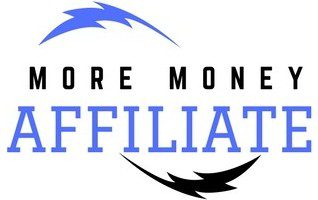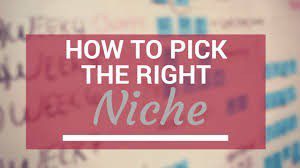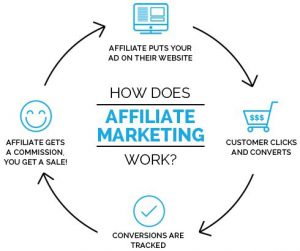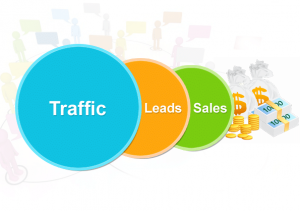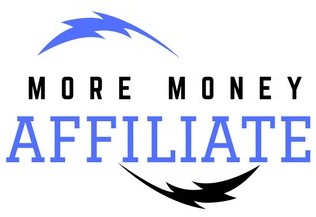Blogging Success
If you are looking to start doing and writting about what you love, then blogging is a wonderful thing that can help you to share your message with the world. But more than that, it can also be a tool for making money online – and it can be a great way to build up a strong community of people that you can then launch other products and services to.
A great blog will get readers coming back time and time again. It will draw them in and be both entertaining and useful at the same time – and if you can become to the ‘go-to’ blog in your niche then all sorts of magical things can start to happen. You can make money from the blog directly (for example by selling advertising space) or you can use it to drive traffic to other websites (for example your own products/service or those you are promoting as an affiliate).
The truth is that getting started as a blogger is pretty straightforward, however there are also a lot of different things to think about and here I will give you some usefull information about having success with blogging.
WHY START A BLOG?
A successful blog will take time and commitment, but it can be extremely rewarding and profitable. If you’re willing to put in a little work, you might gain more out of a blog than you expect. Keep reading to find out some of the reasons you may want to start a blog.
Making Money
Many people make money – whether that’s directly or indirectly. There’s a wide range of earnings, and how much money your blog can bring in will depend on a number of factors, including how much traffic your site gets and how you monetize it. Effective networking, an established following, and high-quality content will help a blog to generate more money. Some people earn thousands per month from a single blog, and a number of successful bloggers have
made blogging their full-time career.
While you shouldn’t expect your blog to earn lots of money immediately (it requires a lot of dedication and hard work to become a successful blogger), a blog can be monetized in a number of ways…
Sell advertising space on your blog to other businesses and bloggers.
Promote your own products and services on your blog, and you can promote other people’s products as an affiliate to earn commission on sales (affiliate marketing).
You can also use a blog to build up an email list, which you can then use as an additional means of
marketing.
A high-quality blog is an excellent way to establish yourself as an expert with authority in your field. This is especially important if you run a business or are a professional looking for more clients.
A blog helps to give your name more recognition, and it can help you to find more customers and connections. Every time someone does an online search for a topic you’ve written about, they might find your blog. In turn, they might end up purchasing your services.
Writing high-quality content also shows that you are knowledgeable and confident about the subject you’re writing about. A well-read blog can place you at the top of your field.
Helps Develop Valuable Skills
Blogging can also help you to develop valuable skills. The first (and most obvious) is writing. Even if you don’t think of yourself as a great writer, blogging can help you to build your writing skills. The more you blog, the more you’ll find yourself able to organize your thoughts and develop an engaging story. Being able to write well will come in handy in many ways, from sending emails, to project proposals, to holiday greeting cards. You will almost definitely find yourself benefiting from writing skills in both your professional and personal life.
Writing a blog will also help you to become a better communicator in general, expressing yourself more effectively orally in addition to in writing. You’ll also likely find yourself becoming more organized and observant in everyday life. All of these skills can help you in a number of ways.
Apart from the time you put into it, there are really no downsides to starting a blog. With blogging platforms such as WordPress, you can start a blog for absolutely no cost, with wealthy affiliate you can start your online business for free. This means that even if your blog doesn’t end up making money or bringing in new customers, you haven’t lost anything. Instead of asking yourself why you should start a blog, perhaps you should start asking yourself, “Why not?”
HOW TO CHOOSE A NICHE FOR YOUR BLOG
When you first start blogging, you’ll hear a lot about choosing a niche. Your niche encompasses both the subject of your blog and the target audience who will be reading it. Choosing the right niche will help make writing your blog both enjoyable and profitable, but the question remains: how do you choose the right niche?
There’s no one formula for finding the perfect niche, but the following guidelines will help you to pick a strong niche for successful blogging.
Start With Something You Care About
Choosing the right subject that you’re passionate about is certainly an important consideration when choosing a niche. I know some people will tell you to not do this but, when it’s your first blog, it will make it easier when you go to write content and not really be inspired to do so. It happened to me and I was grateful for having people around that I could ask and give me the right answer based on their experience.
Because, there will be days when writing a blog post isn’t your favorite activity, but overall, your blog needs to give off a sense of expertise and enthusiasm. The more you know and care about a subject, the better you can write about it, and the more readers will want to read your content.
If you want to have a successful blog, you’re going to be writing regularly (at least once a week) for a long time. Your content will become dry and boring very quickly if you’re not personally interested in your topic. Your readers will absolutely notice if you are not excited about your topic.
Choosing a niche you’re passionate about will also help to motivate you and keep you writing in the long term.
Choosing a Profitable Niche
If you looking to make money from your blog, you also need to choose a niche that has some potential for profit. This means deciding on a niche that a substantial number of people are also interested in. One way you can figure this out is by using a keyword analysis tool, such as Google AdWords Keyword Planner or you can search what is trending.
Try entering in keywords related to your subject and see how many searches people are doing for those terms. You want to choose something that’s getting at least a few hundred monthly searches to ensure that some traffic comes to your site.
Another great tip for choosing a profitable niche, you’ll also want to consider the potential for advertising. In order to effectively monetize your blog, you’ll need to find advertisers who want to reach your target audience. Off of the top of your head, can you think of at least 3 companies who might be interested in advertising on posts about your niche topic? If not, you might not have much potential for advertising revenue, and you might need to come up with a different niche.
Choosing a Niche Of The Right Size
One of the trickiest things about choosing a niche for your blog is picking something that’s the right size. If you choose something too general, you risk being lost in a sea of search results. If you choose something too specific, your target audience may be too small.
When you’re coming up with an idea, try creating a list of variants of the same niches, ranging from the most general to the most specific. Then you’ll want to pick something around the middle. Niches such as “Travel” and “Business Marketing” are likely too broad. You’ll be competing with thousands of other websites with the same keywords, and you’ll miss out on readers who are looking for something more specific.
“Budget Backpacking” and “Marketing for Landscaping Businesses” are more specific but still have significant target audiences. With a more specific niche, you’ll have less competition and are more likely to draw in readers who are looking for more targeted information. Just be careful not to go too narrow, as you’ll potentially be writing hundreds of posts on this topic.
Remember that you can tweak your niche a bit as you build your blog. If you start with too wide of a focus, you can decide to make it more specific and write posts within a smaller area of interest. Conversely, if you realize your niche is too small, you can add a variety of posts to broaden your subject. This is easiest to do if you choose a niche to start with that has a bit of flexibility for expansion or contraction.
If you do your research and choose something that you’re passionate about, your niche is likely to help make your blog successful.
CHOOSING A BLOGGING PLATFORM
When you want to start a blog, one of the first things you’ll need to decide is where you want to host it. The best and easiest platforms is WordPress.
WordPress have it’s own benefits and may be the best choice for different people. Wealthy Affiliate uses wordpress and they have help center available if you have any problems with your website.
The Pros of WordPress
• Ownership: Because a WordPress blog is self-hosted on your own website, you own and have complete control of your blog. Unlike other platforms, nobody like Google can come along and delete your blog, and you can do absolutely anything you want with it.
• Flexibility: WordPress comes with a plethora of options, some of which you have to pay for, but many of which are free. There are thousands of themes to choose from, so you can give your blog any look you want. There are also thousands of plugins available, enabling you to add extra features to your site in any configuration you want. In addition, you can set up whatever kinds of ads and monetization you want.
• Stable future: WordPress is actually an open source system, meaning that a whole community of users and developers control it. WordPress is also the most popular content management system. Its popularity and widespread use means that it will definitely be sticking around for a long time.
The Cons of WordPress
• Cost: Unlike their competitors, a self-hosted WordPress site is not free, although it is not very expensive. First, you’ll need to purchase a domain name (what you’ll use for your url), which usually doesn’t cost much more than $10. You then need to choose somewhere to host your site. You’ll pay for hosting monthly, and depending on how much storage space and traffic you expect to need, hosting usually costs between $3 and $20 a month.
• Harder Set-Up: Because you have so many more options, setting up a WordPress blog is a little harder than a Blogger one, although it’s still relatively straightforward. You’ll need to take some time to choose your domain name, set up hosting, and construct your pages. Templates and plugins can make this fairly easy, however, even for the less technical of us.
• More maintenance work: On WordPress, you are responsible for backing up your site, security, and maintenance. WordPress definitely has its security issues, although with the help of some plugins and a little tweaking you can make your blog pretty secure, providing that you update your site regularly. If you want more information on WordPress security then just Google ‘Wordpress security’ and you should be able to find plenty of helpful information.
Conclusion
WordPress is a strong platform for blogging. If you plan to take your blog seriously, WordPress is probably the best option for you. It grants you far more control and possibilities for customization. When you’re trying to make money from your blog, this can help a lot. You will also own all of your own content, without concern that your site might be closed by Google outside of your control. For these reasons, WordPress is usually the choice of experienced and professional bloggers.
HOW TO COME UP WITH IDEAS FOR BLOG CONTENT
Content is at the heart of any blog. It’s what makes people read your blog in the first place – and it’s what keeps people coming back to your blog time and time again.
If you’re just starting a blog, you’re probably full of exciting ideas for posts that you can’t wait to write (if you’re not, make sure that you’ve chosen a subject you’re passionate about). Somewhere down the line, whether it’s after 20 posts or 200, you’re probably going to be struggling to come up with new ideas. It’s a problem that every writer faces.
Sometimes you just hit a rut in creativity. When you find yourself in these moments, try the following tips to come up with ideas for new blog posts.
Keep a Running List
One of the best ways to make sure that you don’t run out of ideas is to keep a list going. Often, you may think of an idea while reading something else, in the middle of a conversation, or while you’re out on a walk. Don’t let that idea get away!
Write it down, and regularly record all your ideas in one place (a journal, a Google Doc, a spreadsheet, whatever works for you). That way, you’ll have a go-to source of ideas. If you ever need to come up with a blog post quickly, you’ll be prepared.
Read, Read, Read
Reading other content is one of the best ways to come up with your own ideas. That doesn’t mean to simply copy someone else’s topic (although you might want to write on the same topic if you have your own information to add to it). Reading an article might inspire you with an idea about a related topic, or you might come up with an intriguing question that leads to a blog post.
The more you read, the more informed you’ll be, and the more information you’re processing, the more likely you are to come up with interesting and knowledgeable blog posts.
Looking For Questions
Often, lingering questions produce some of the best ideas for posts. Are friends and family asking you similar questions about your industry in conversation? Write a blog post to answer them. Has someone left a question in the comments on one of your posts? It’s probably a great idea for a new post. Is there something you’ve always wondered about your subject? You guessed it – write a blog post about it.
You can find questions in a lot of places. Try searching through FAQ pages related to your area of interest. Read other blogs and see if people in the comments have questions, or if other bloggers are leaving anything unanswered. Questions mean that there’s a need for information, and you can fill that need.
Updating An Old Post
Look back through your blog. Do you have any popular posts that you could add to? Maybe you posted about a news item, and there have been more recent developments. Maybe you made a post offering advice and strategies, and you have some new ideas to add in. It’s perfectly acceptable to add an update as a new post.
If you think you’ll continue to have updates, you can even make it a series. A series is also a great way to add some consistency to your blog.
When In Doubt, Ask
Sometimes you can let ideas come to you. This is particularly true if you have a decent amount of readers or followers on social media. If you’re stuck for ideas, try reaching out to your followers with a tweet or Facebook post asking what they want to know about. You might come up with some great ideas, and you’re guaranteed to have at least one interested reader.
How To Write Engaging Content
Good grammar and a strong command of language will make your blog posts easy to read, but the trick to drawing readers in is to make them engaging. An engaging blog post is one that your reader connects with and wants to keep reading. Really engaging writing makes readers come back to your blog and share your content.
This can make the difference between a small blog with a handful of readers to an immensely successful blog that’s continually attracting more followers. Writing engaging posts, therefore, should be one of your top goals.
Add Some Soul
When you’re writing a lot of blog posts, it can be all too easy to slip into writing bland, emotionless content. But why are you going to waste your time writing posts that you don’t care about, and that your writers inevitably won’t care about either? A great blog post has some soul.
When you can, write about something that you really care about, and work in your own unique voice, even if you fear it makes you sound less professional. You want your blog to sound like it’s coming from a real flesh-and-blood person, not a computer. When you have something to say, don’t shy away from expressing your opinion.
If you’re arguing something controversial, you may get some negative responses, but sparking a reaction is proof that you’ve written something engaging. Put yourself into your blog posts, and you can expect your readers to give something of themselves in return.
Use Emotions
Writing engaging posts has a lot to do with engaging readers’ emotions. Emotions, more than facts and statistics, will help a reader to remember a post. When you’re writing, think about what emotions you might play on in relation to your topic: excitement, happiness, hope, ambition, fear?
Connect to these emotions and use emotion words to help your content engage with your readers.
Be A Story Teller
When you think about all the things you’ve read, which are the ones you remember? They’re probably stories. One of the easier ways to include emotions and engage with the reader is to tell stories in your blog posts. Everyone loves a good narrative. Stories make your content easy to follow and help your readers to picture themselves in a particular situation.
You can tell a story about your own personal experience, relate someone else’s story, or ask your readers to imagine themselves in a particular situation.
If you find you have a dry paragraph, adding in a short story is a great way to quickly make it more engaging. Try working your facts and statistics into stories to make them relatable. Think about it: you’ve probably been more moved by the story of a single cancer victim than you have by the many statistics about cancer. Use the same principle in your writing: use stories to move your readers.
Keep Things Short
Writing a blog isn’t the same as writing a Pulitzer Prize winning novel. Your goal should be to make it as easy to read as possible. This means keeping things short and simple. Your sentences should be short and avoid any overly complex vocabulary. If you have a sentence that goes over two lines, that’s a good sign it’s too long.
Short sentences are easier to absorb and are likely to keep your audience reading.
The same principle holds true for your paragraphs. Long, chunky paragraphs look intimidating on the page and can turn a visitor away from reading your blog post. Instead, break your writing up into short, easily digestible paragraphs. You can use headings and sub-headings to help break things up. These tricks will make your content easy to read and help to keep
readers engaged.
MONETIZING YOUR BLOG
If you’re going to make money from your blog then you’ll need to think carefully about exactly how you want to monetize it.
There are multiple ways you can do this, and how you monetize will depend on your blog’s niche, how obtrusive you want any advertisements to be, and how much money you want to make. In this section we are going to outline some ways of monetizing a blog to help you figure out the best way to start making money.
Pay per Click and Pay per Impression Ads
This is probably the most popular kind of monetization used on blogs. The concept is pretty simple. For pay per click ads, you’ll earn money every time someone clicks on the ad placed on your blog. You and the advertiser will agree ahead of time on a cost per click, and you’ll find that products and services that cost more usually correlate to a higher cost per click.
Predictably, pay per impression (sometimes also called cost per mile) advertising pays you depending on the number of impressions (views) your page gets. You’ll usually be paid for every 1,000 impressions. Both pay per click and pay per impression ads can be banners or text ads.
As you can imagine, you’ll generate more money if you have lots of traffic to your blog. Without a fair amount of visitors, you may only be making pennies. It often takes time to build up a blog following though, so don’t get discouraged if you’re not making good money immediately.
Direct Advertising
Direct advertising will look very similar to pay per click and pay per impression ads to your readers, but it works differently for you. Instead of earning money based on views or clicks, you sell advertising space at a set price to advertisers. You and the advertiser will agree on a set price and how long the ad will run for. If your blog has a lot of traffic, you can negotiate for a higher price.
You can often sell ads directly to advertisers, but there are also marketplaces (such as BuySellAds) that can connect you to advertisers. These marketplaces will usually take a commission, though, so if you can work it out yourself, that’s generally the better route.
Affiliate Programs
Many products and services offer affiliate programs. If you sign up as an affiliate, you’ll earn a commission for every sale you generate for that business, which can be either a set fee or a percentage of the sales price. This is an easy and potentially very profitable way to monetize your site. You’re likely to mention products or services in your blog posts, particularly if your blog provides consumer advice. Anytime you mention something that can be sold, you can check to see if the provider offers an affiliate service.
Simply adding a link to your post can potentially generate profit for you. Amazon’s Associates program, for example, allows you to link to any of the many products on Amazon. It’s very easy to add in these links, and it’s one of the subtlest forms of
advertising you can use on your blog.
Sponsored Reviews
Sponsored reviews are another way you can monetize consumer advice on your blog. Advertises are often looking to promote their products and services through spreading positive reviews. A sponsored review is a review that an advertiser pays you to write. You can still include balanced and accurate information about the product, as long as you end by recommending it. You can limit yourself to doing sponsored reviews for products that you would genuinely recommend to keep your blog honest and maintain trust with your readers. You can reach out to businesses to inquire about writing sponsored reviews.
As your blog gains more traffic, you’re likely to start receiving offers from businesses related to your niche. If you feel comfortable writing these posts, they can be a great way to earn money.
Promote Your Own Products and Services
One of the most potentially lucrative ways of making money from a blog is to use it as a way of promoting your own products and services. Once you have built up a bank of loyal readers and have established a community then you have an established user base to market your related products/services to.
GENERATING TRAFFIC TO YOUR BLOG
Every blog needs a constant flow of daily visitors. After all, there is no point in having a great blog if nobody ever reads it!
As your blog becomes established then you should find that you don’t need to spend so much time on generating traffic to it. If you can establish your blog as a constantly updated source of great information then people will keep coming back to your blog time and time again. You’ll establish a loyal readership and the word will start to spread within your niche.
It takes time and effort to get your blog into this position, though. No
matter how good your blog is, you need to “get the word out there” and
put your blog in front of the world.
SEO
Search Engine Optimization (SEO) is the process of optimizing your blog so that it ranks better in search engine results. If you can rank highly for keywords that are related to your niche then there is the potential for a lot of people to come across your blog. Although SEO is a complex subject that incorporates many different techniques and strategies, the main thing to think about is posting great content that also includes relevant keywords that are related to your niche.
Considering targeting one main keyword per blog post. It is also worth looking at the ‘All In One SEO Pack’ plugin that is available for WordPress. This plugin automatically optimizes your blog for SEO, as well as allowing you to fine tune and optimize your blog further still.
Blog Commenting
One of the best ways of driving traffic to your blog is to find other blogs in your niche and then leave comments on their posts. Readers of these blogs will see your comments and be quite likely to check out your blog.
It is worth noting that this strategy only works if you leave valuable comments. Visiting fifty related blogs and leaving comments such as “Great post, I really enjoyed it” is NOT a good strategy to take. Instead you should take the time to read the post and leave a comment that shows people your knowledge of the subject.
Leave your own personal thoughts. Add your own opinion. Show people that you have something to offer and that they should come across and read your blog too.
Forum Posting
By participating in forums in your niche you can put your blog in front of your target audience. People come across your posts and then go to check out your blog using your forum signature link. The focus here should again be on making valuable posts and showing people that you are an expert in your field.
By regularly posting you can start to build relationships with these people and turn them into regular readers of your blog.
Advertise On Other Blogs
If you’re prepared to spend some money then a good option can be to advertise on other blogs. Alternatively you could agree a joint venture deal with the other blog owner – for example an adswap, where you advertise their site on your blog and they return the favor.
Tell Your Existing Customers
If you already have existing customers and contacts who might be interested in reading your blog then make sure that you let them know about it. You could include your blog URL on your business cards, for example, or at the bottom of every email you send.
Social Media
Social media can be a fantastic source of traffic, although that’s a whole book in itself! If you have a Facebook page, Twitter account, Google+ page etc, then share every new blog post with your followers. A tool such as Hootsuite can be very helpful in helping you to manage your social media accounts.
Final Thoughts
As we have discussed, blogging can be hugely fun AND profitable. It can be a great way of making money online in itself, as well as providing a fantastic platform to help you promote your other products or services. You can also use your blog to establish yourself as an authority source in your niche, which can really help you to spread your message and ultimately enable you to make more money in your business.
What are the secrets to success?
Content is at the heart of any blog, so that’s a good place to begin. It is absolutely imperative to make regular posts that your target audience will enjoy. It is important to ensure that your posts contain useful information, whilst also being fun to read – and you definitely shouldn’t underestimate the importance of the latter. People also read blogs for entertainment, and you would be amazed at the difference that injecting a bit of humor into your posts can make.
In addition, it is important to remember that you can’t just build your blog and ‘hope they will come.’ It is absolutely essential to spread the word about your blog to as many people as possible, so it’s definitely worth spending some time to give serious thought about how you are going to promote your blog and make it known to people in your niche.
I hope that you enjoyed this report and that you found it useful. The best thing to do now is to just get started. Blogging definitely DOES have a learning curve, however it’s really not that scary and you’ll learn as you go.
Thanks For Reading,
